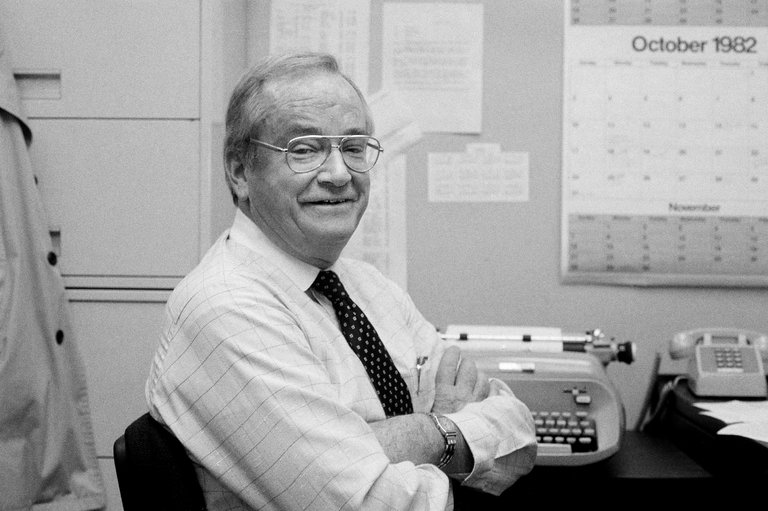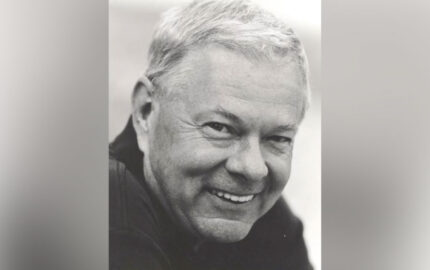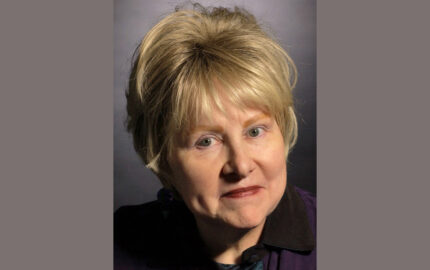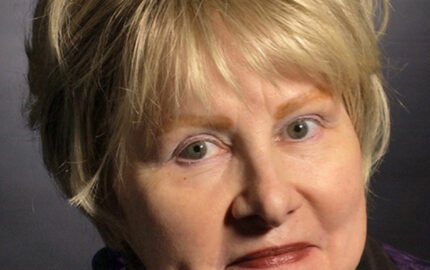John Herbers, a 1961 Nieman Fellow and a longtime New York Times reporter who covered the civil rights era, died March 17 in Washington, D.C. He was 93.
Reporting first for United Press International and then joining the New York Times as a national affairs reporter, Herbers covered racial turmoil and the drive for civil rights in the Deep South in the 1950s and ‘60s. He covered the murder of Emmett Till and the subsequent trial in Mississippi in 1955, and went on to write about killings of black people and rights workers, Ku Klux Klan rallies, white law enforcement members committing violence against blacks, and federal action to end segregation. Herbers often covered events at risk to his own safety; he was chased by white mobs, confronted by Klansmen in Mississippi, and received multiple death threats.
Born in Memphis, Tennessee in 1923, Herbers—after graduating from Brownsville High School in 1941—was a combat infantryman based in the Pacific during World War II. Following the war, he attended Emory University and graduated with a degree in journalism in 1949. He began his journalism career as a reporter and city editor for The Morning Star newspaper in Greenwood, Mississippi before joining The Jackson [Mississippi] Daily News as a political and state reporter.
Herbers was hired as the Jackson bureau chief for the United Press in 1953 and oversaw state coverage, including racial affairs. After a merger, United Press International assigned him to Washington to cover the Labor and Justice Departments.
He went on to become an Atlanta-based correspondent for The New York Times, beginning in 1963, and spent nearly 25 years with the paper, reporting from around the country. He covered antiwar protests, Congress and the White House, Robert Kennedy’s presidential race and assassination in 1968, Watergate, and Nixon’s resignation. After briefly being an assistant national editor in New York, he returned to Washington in 1976 as the deputy bureau chief, and later became a Washington-based national correspondent. He retired from the Times in 1987, but continued to occasionally write for the paper as well as being a columnist for Governing magazine. He taught seminars on politics and the press at Princeton and the University of Maryland, and authored a number of books, including “The Lost Priority” (1970), about the decline of the civil rights movement. A currently untitled memoir is expected to be published next year.
Herbers is survived by four daughters, a sister, and many grandchildren. His wife, Mary Elizabeth Wood, died on February 5.
Reporting first for United Press International and then joining the New York Times as a national affairs reporter, Herbers covered racial turmoil and the drive for civil rights in the Deep South in the 1950s and ‘60s. He covered the murder of Emmett Till and the subsequent trial in Mississippi in 1955, and went on to write about killings of black people and rights workers, Ku Klux Klan rallies, white law enforcement members committing violence against blacks, and federal action to end segregation. Herbers often covered events at risk to his own safety; he was chased by white mobs, confronted by Klansmen in Mississippi, and received multiple death threats.
Born in Memphis, Tennessee in 1923, Herbers—after graduating from Brownsville High School in 1941—was a combat infantryman based in the Pacific during World War II. Following the war, he attended Emory University and graduated with a degree in journalism in 1949. He began his journalism career as a reporter and city editor for The Morning Star newspaper in Greenwood, Mississippi before joining The Jackson [Mississippi] Daily News as a political and state reporter.
Herbers was hired as the Jackson bureau chief for the United Press in 1953 and oversaw state coverage, including racial affairs. After a merger, United Press International assigned him to Washington to cover the Labor and Justice Departments.
He went on to become an Atlanta-based correspondent for The New York Times, beginning in 1963, and spent nearly 25 years with the paper, reporting from around the country. He covered antiwar protests, Congress and the White House, Robert Kennedy’s presidential race and assassination in 1968, Watergate, and Nixon’s resignation. After briefly being an assistant national editor in New York, he returned to Washington in 1976 as the deputy bureau chief, and later became a Washington-based national correspondent. He retired from the Times in 1987, but continued to occasionally write for the paper as well as being a columnist for Governing magazine. He taught seminars on politics and the press at Princeton and the University of Maryland, and authored a number of books, including “The Lost Priority” (1970), about the decline of the civil rights movement. A currently untitled memoir is expected to be published next year.
Herbers is survived by four daughters, a sister, and many grandchildren. His wife, Mary Elizabeth Wood, died on February 5.



